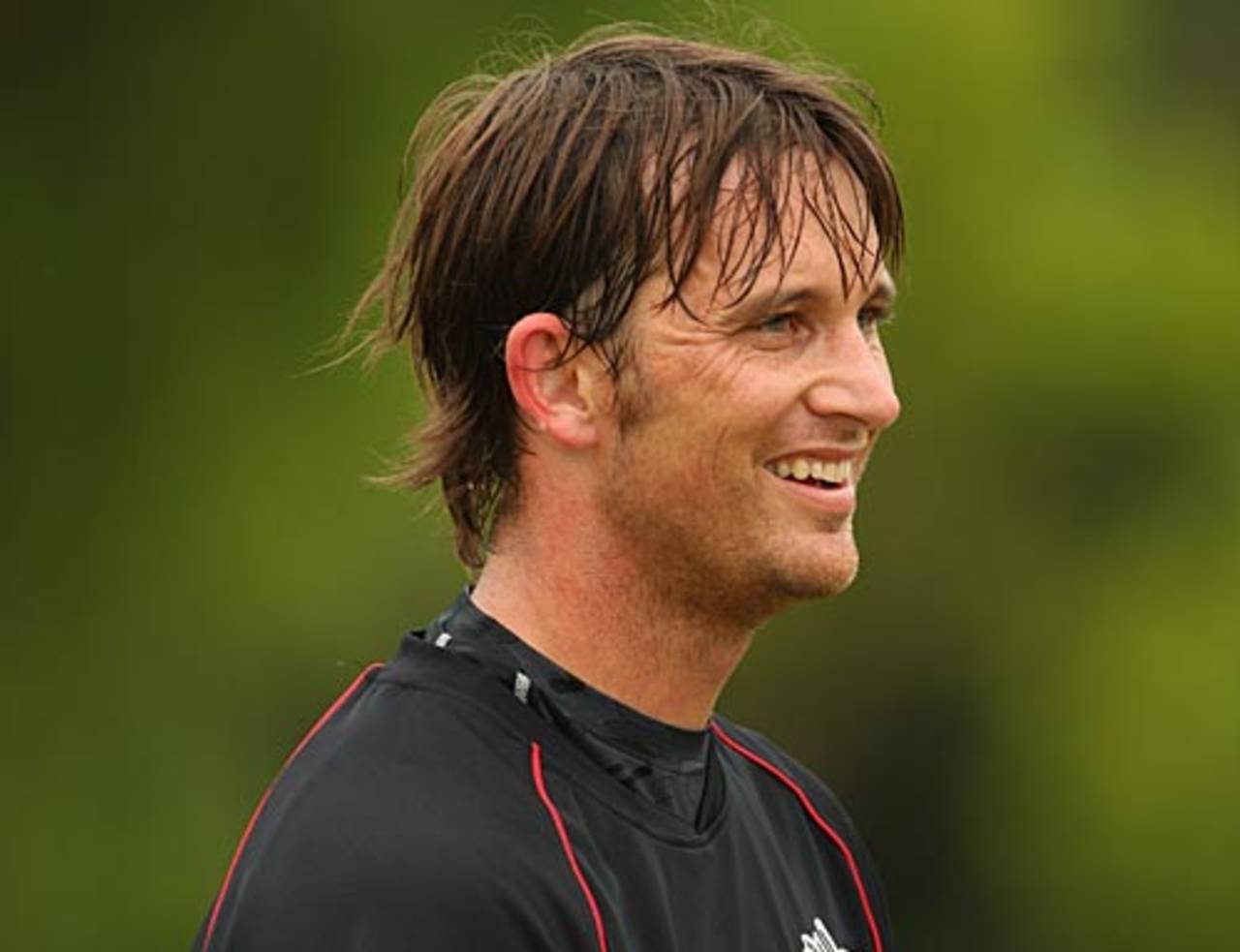Tomorrow's Twenty20 international against Sri Lanka marks the playing debut in
Shane Bond's tenure as the New Zealand men's bowling coach. Little else is likely to be gleaned from the one-off match, but in bowling parlance at least, Bond can place his marker and begin his run-up towards improving New Zealand's performances.
His
appointment follows an interview process, a mad rush to get qualified to level-three coaching standard, and a stint with the New Zealand women's team at the World Twenty20 where they exited in the semi-finals.
Bond comes with the pedigree of being New Zealand's finest fast bowler since Sir Richard Hadlee, with 87 Test wickets at 22.09. His average sits behind post-World War II paceman Jack Cowie (21.53) and ahead of Hadlee (22.29) among those who have bowled more than 2000 deliveries.
Bond has worked extensively with New Zealand's developing talent, particularly at Central Districts, where he has dealt with the likes of Adam Milne (a player on the cusp of more regular national selection), Ben Wheeler and Bevan Small. In addition, he has helped remodel former New Zealand player Hamish Bennett's action.
Bond may have recently been working through coaching theory but he has a wealth of practical experience in wicket-taking, injury recovery and courage. He has the respect of former team-mates still in the squad, and those of a new generation who have borne witness to his performances in the last decade on television. Many of those efforts are the best thing New Zealand fans have seen with a ball, post-Hadlee. Yet Bond is aware exceptional players rarely make exceptional coaches. He acknowledges the work ahead.
"I understood what it took to reach a relatively successful standard, yet I appreciate I would have done some things differently. Hopefully I can pass that on as a coach. I know there are guys in the team I played with, so that presents a challenge, being in a different role, but it's a problem I'm prepared to deal with.
"Since I've finished playing I've realised I still love cricket. I'm a huge watcher and enjoy the analytical side of the game. It seems a natural progression to coach at the elite level because it's where I had the most fun in the game. In my time away from the New Zealand environment I've had a variety of coaching experiences. I'm lucky to have worked with the CD [Central Districts] development squad for a couple of years and alongside top coaches like [former Canterbury and now New Zealand assistant] Bob Carter and [new Canterbury coach] Gary Stead. Being given the opportunity to coach the country's top women has been a key part of that.
"[At CD] I helped with development work by planning trainings to give them purpose. Sometimes at training we don't maintain the level of accuracy we need. I looked at building programmes where, for instance, someone will bowl eight high-intensity overs in the nets, incorporating skills into their routine. It's also about including specialists where required - former New Zealand physio Bryan Stronach did a lot of the fitness programme.
"You always need a process where people are challenged. Even though I've got a pretty good Test record, I didn't start until late. Sometimes you never know who will succeed until you push. As much as you don't like it sometimes as a player, it is necessary to take people out of their comfort zone."
Bond's desire to progress from player to coach has never been in doubt. His ambition is outlined in the final chapter of his 2010 biography Looking Back. It is entitled "A Better Way" and addresses his solutions to the problems of New Zealand cricket.
Toil was the key theme. Bond wrote: "We consistently produce really talented players, but we underachieve because we do not have the same tough work ethic that some other countries have.
"International cricket comes down to hard work and a good skill base. But instead of focusing on those core assets, we too often become sidetracked by cricket's peripheral issues, like dressing-room etiquette and harmony.
It might be a surprise to learn that some of the best teams in the world don't have dressing rooms where everyone is best mates. Some teams seem to thrive despite appearing to be pretty fractious.
"The answer is not to get back to basics, to try to recapture what we once had, but to get our talented youngsters working a hell of a lot harder and to keep up with the best in terms of coaching and innovation."
Bond cites Mark Richardson and Daniel Vettori as New Zealand's best playing examples in recent memory.
In Bond's biography, Vettori noted his long time team-mate was the best strike weapon he had at his disposal as captain. He said Bond also brought out the best in others around him. "He's one of those rare guys that makes people better just by being on the same field as him. He's a huge loss."
Now New Zealand has to hope Bond's return is equally a huge gain, even if he is only in the pavilion and at the nets, rather than on the field.
Andrew Alderson is cricket writer at New Zealand's Herald on Sunday
